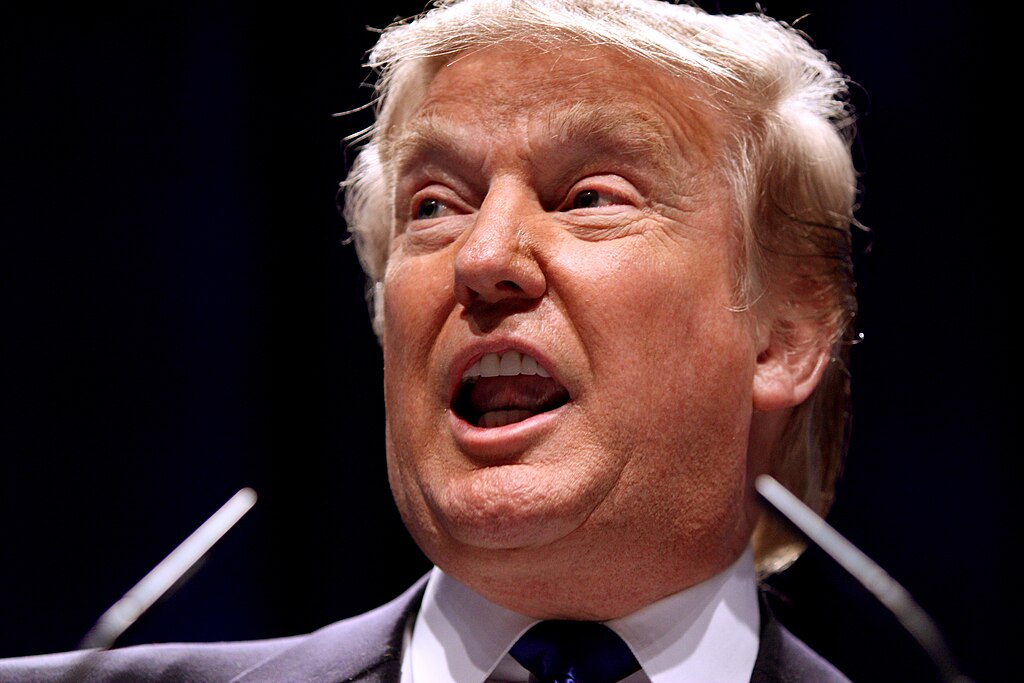President-elect Donald Trump has filed a staggering $10 billion lawsuit against some of the United States' most prominent media outlets, including The New York Times and CBS. The legal action, announced late Friday, accuses these organizations of defamation and intentional misinformation during the 2024 presidential election campaign.
The lawsuit has sent shockwaves across both political and media landscapes, with critics calling it an unprecedented attack on press freedom, while supporters laud it as a fight against media bias.
Sweeping Allegations of Defamation
In a statement issued by Trump’s legal team, the lawsuit alleges that The New York Times, CBS, and unnamed other outlets published and broadcast “knowingly false and defamatory statements” aimed at undermining Trump’s re-election campaign. These statements, according to the lawsuit, caused significant harm to Trump’s reputation, his campaign, and his standing as President-elect.
The $10 billion in damages sought by Trump is being described as one of the largest defamation claims in U.S. history, underscoring the gravity of the allegations. Trump’s team asserts that the media’s actions amount to an orchestrated effort to mislead voters and sway the outcome of the election.
Media Outlets Under Fire
The lawsuit specifically names The New York Times and CBS, but also leaves room for additional defendants to be added as the legal process unfolds. Trump’s legal team has reportedly been collecting evidence over the past year, including internal communications and anonymous whistleblower accounts, to bolster their claims.
Representatives for The New York Times and CBS have so far declined to comment on the lawsuit. However, media experts are already debating the broader implications of the case, especially concerning freedom of the press and First Amendment protections.
A History of Legal Feuds
This isn’t Trump’s first clash with the media. Throughout his political career, he has consistently criticized outlets he deems biased, branding them as “fake news.” However, this lawsuit marks a significant escalation in his battle against what he perceives as media misconduct.
Legal analysts are divided on the merits of Trump’s case. Some argue that proving defamation against media entities, particularly public figures, sets a high legal bar. Others note that the sheer magnitude of the damages sought may force defendants to settle rather than endure prolonged litigation.
Supporters vs. Critics
Trump’s supporters have rallied around the lawsuit, framing it as a necessary step to hold media corporations accountable. Conservative commentators have pointed to the case as evidence of a broken system that allows misinformation to proliferate unchecked.
Critics, however, argue that the lawsuit represents a dangerous precedent, potentially chilling press freedom and intimidating journalists from pursuing investigative reporting on public officials.
What’s Next?
The case is expected to ignite a protracted legal battle, with far-reaching implications for both Trump’s administration and the media industry. As Trump’s team prepares for its day in court, the media outlets targeted are likely to mount a vigorous defense, framing the lawsuit as an attack on journalistic integrity.



 More U.S. Investors Join Arbitration Against South Korea Over Coupang Dispute
More U.S. Investors Join Arbitration Against South Korea Over Coupang Dispute  U.S.-Iran Nuclear Talks Show Progress but No Breakthrough Amid Rising Military Tensions
U.S.-Iran Nuclear Talks Show Progress but No Breakthrough Amid Rising Military Tensions  Pentagon Leaders Monitor U.S. Iran Operation from Mar-a-Lago
Pentagon Leaders Monitor U.S. Iran Operation from Mar-a-Lago  Trump Media Weighs Truth Social Spin-Off Amid $6B Fusion Energy Pivot
Trump Media Weighs Truth Social Spin-Off Amid $6B Fusion Energy Pivot  Medical Groups Sue FTC Over Gender-Affirming Care Investigations Amid Trump Policy Dispute
Medical Groups Sue FTC Over Gender-Affirming Care Investigations Amid Trump Policy Dispute  JPMorgan Closes Trump Accounts as $5 Billion Lawsuit Moves to New York
JPMorgan Closes Trump Accounts as $5 Billion Lawsuit Moves to New York  Federal Judge Blocks Trump Administration’s $600 Million Public Health Funding Cuts to Democratic-Led States
Federal Judge Blocks Trump Administration’s $600 Million Public Health Funding Cuts to Democratic-Led States  Venezuela Oil Exports to Reach $2 Billion Under U.S.-Led Supply Agreement
Venezuela Oil Exports to Reach $2 Billion Under U.S.-Led Supply Agreement  U.S. Blocks Venezuela From Funding Nicolas Maduro’s Legal Defense in New York Drug Trafficking Case
U.S. Blocks Venezuela From Funding Nicolas Maduro’s Legal Defense in New York Drug Trafficking Case  Federal Judge Blocks Virginia Social Media Age Verification Law Over First Amendment Concerns
Federal Judge Blocks Virginia Social Media Age Verification Law Over First Amendment Concerns  Mark Zuckerberg Testifies in Youth Social Media Addiction Trial Over Instagram Policies
Mark Zuckerberg Testifies in Youth Social Media Addiction Trial Over Instagram Policies  Israel Declares State of Emergency as Iran Launches Missile Attacks
Israel Declares State of Emergency as Iran Launches Missile Attacks  Meta Encryption Plan Sparks Child Safety Concerns Amid New Mexico Lawsuit
Meta Encryption Plan Sparks Child Safety Concerns Amid New Mexico Lawsuit  Instagram CEO Defends Platform in Youth Mental Health Lawsuit Over Social Media Addiction Claims
Instagram CEO Defends Platform in Youth Mental Health Lawsuit Over Social Media Addiction Claims  U.S.-Israel Strike on Iran Escalates Middle East Conflict, Trump Claims Khamenei Killed
U.S.-Israel Strike on Iran Escalates Middle East Conflict, Trump Claims Khamenei Killed  AbbVie Sues HHS Over Medicare Price Controls on Botox Under Inflation Reduction Act
AbbVie Sues HHS Over Medicare Price Controls on Botox Under Inflation Reduction Act  ICE Hiring Surge Raises Vetting Concerns Amid Rapid Expansion
ICE Hiring Surge Raises Vetting Concerns Amid Rapid Expansion 































